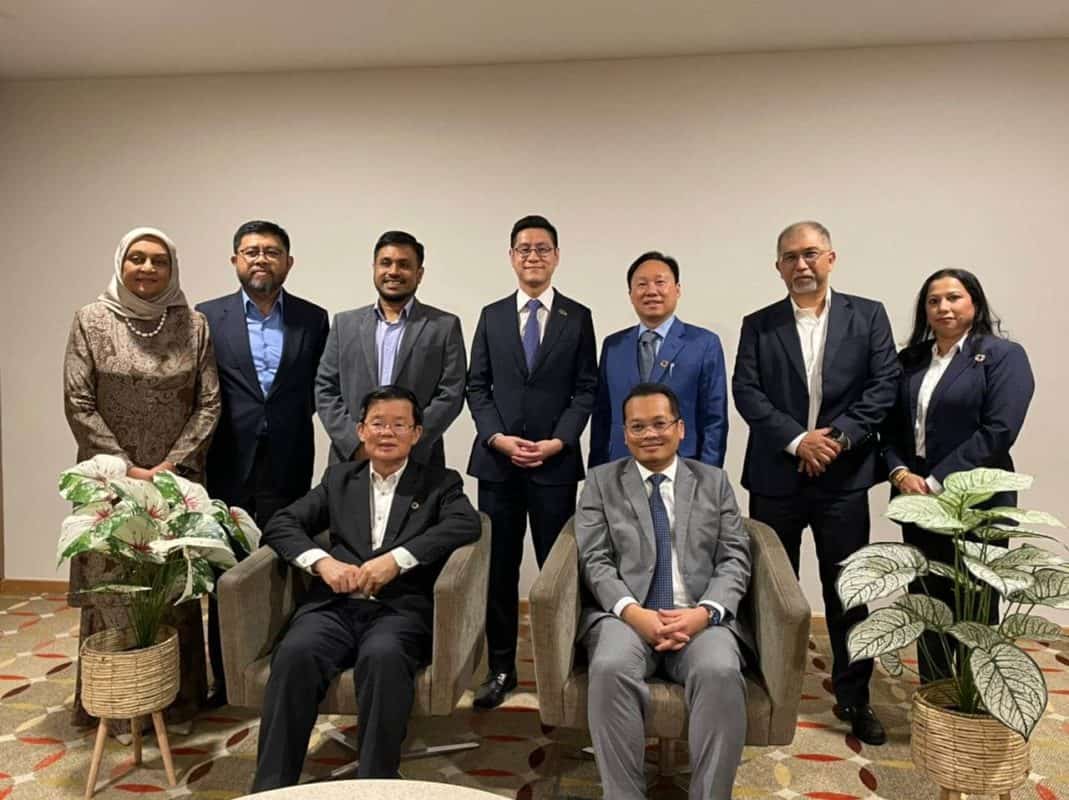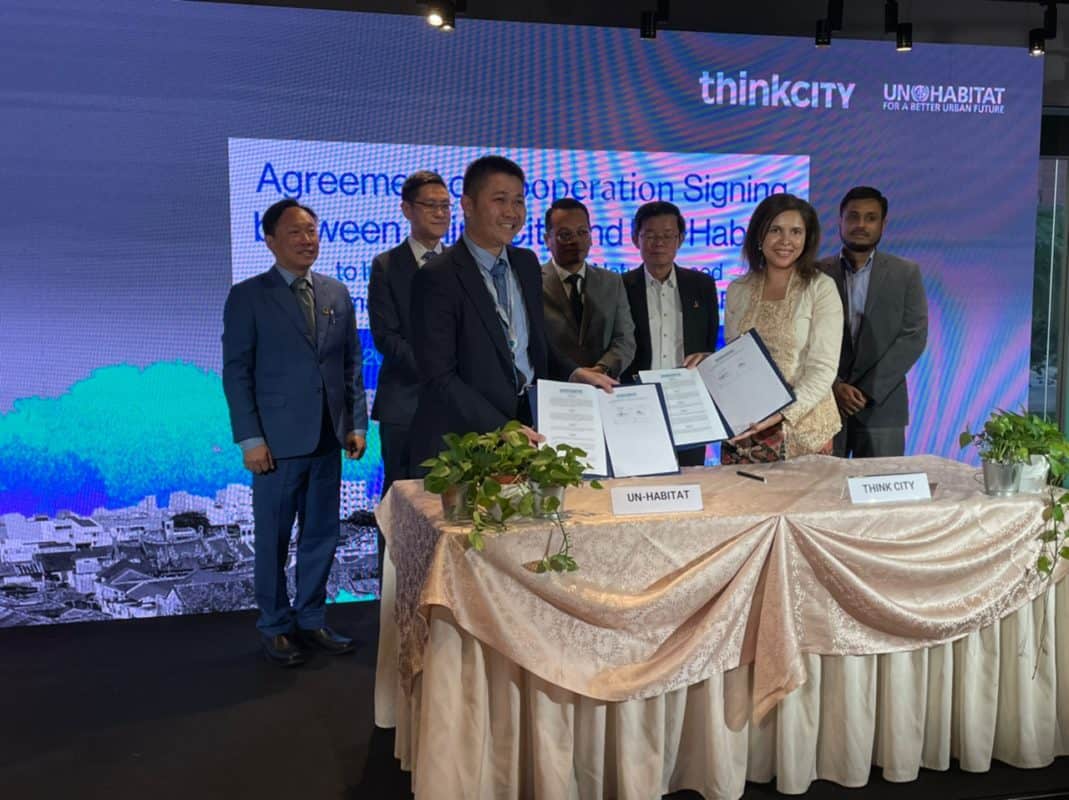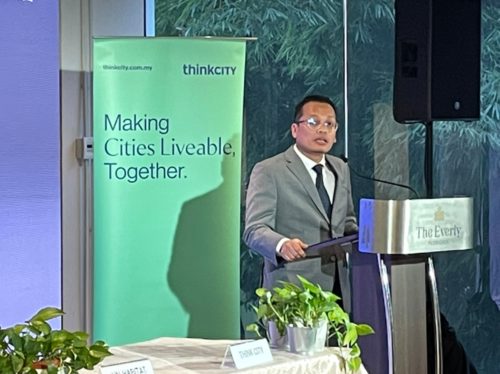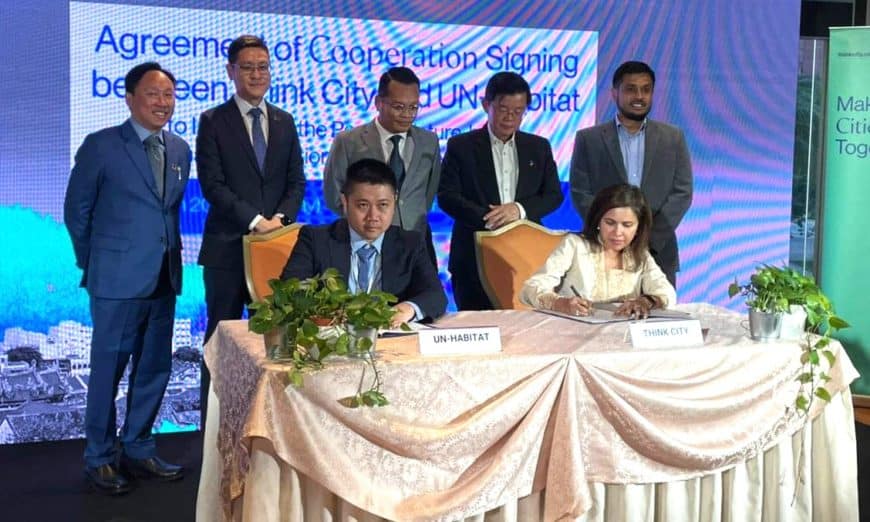CHIEF Minister Chow Kon Yeow today witnessed the signing of an agreement of cooperation between UN-Habitat and Think City for the Penang Nature-Based Climate Adaptation Programme (PNBCap) in Putrajaya.
Chow said he was heartened to see that parties are taking this collective step forward towards addressing the long-term effect of climate change and its impact on public health via the PNBCap.
“PNBCap is a multilateral initiative to enhance urban resilience and reduce human and ecosystem vulnerability to climate change impacts and extreme weather events through the implementation of nature-based solutions.
“It also seeks to improve social resilience and build institutional capacity.
“This is the first municipal climate adaptation programme to be developed in Malaysia. It is in line with the Penang2030 vision, an action plan that focuses on improving liveability, economy, civil participation and balanced development to achieve a family-focused, green and smart state that will inspire the nation,” Chow said in his speech at the agreement signing ceremony.

Among those present were Natural Resources, Environment and Climate Change (NRECC) Minister Nik Nazmi Nik Ahmad, Think City managing director Hamdan Abdul Majeed, and Neil Khor, the special adviser to the executive director of UN-Habitat.
Others who were there included state Transport and Infrastructure Committee chairman Zairil Khir Johari, Balik Pulau MP Datuk Muhammad Bakhtiar Wan Chik, Yayasan Hasanah managing director and Think City director Datuk Shahira Ahmed Bazari, Datuk Amran Hafiz Affifudin (executive director, head, Malaysian Investments, Khazanah Nasional Bhd), and Chief Minister Incorporated deputy general manager Datin S. Bharathi, Tam Hoang (UN-Habitat sustainable urbanisation specialist) and Think City senior director Ahila Ganesan.

Under the Adaptation Fund (established under the Kyoto Protocol of the UN Framework Convention on Climate Change), a grant of US$10 million was approved for the PNBCap on Feb 23, 2022.
The duration of the programme is five years, which Chow said, fits in nicely with the aspiration of the state government as it strives to achieve its Penang2030 vision with seven years remaining.
He recalled that Nov 5, 2017, was a black mark in the state’s history when a big flood occurred after 17 hours of continuous rain and strong winds, leaving many parts of the island and mainland submerged in water, several lives lost and businesses sustained huge losses.
Chow added that in 2018, the Urban Climate Change Research Network has identified that heat stress will become a new challenge for urban areas in Penang as the state transitions from ‘not being at risk’ to ‘becoming endangered’ by 2050.
But Chow said the state is committed to developing a resilient Penang and has carried out several projects under the Penang Green Agenda, Climate Change Impact on Penang Report and Penang Green Connectors.
The Penang Green Connectors project will see the development of various parks and amenities on a massive 18,000ha of the island.
The state, he said, has also gazetted 676.48 hectares of mangrove forest which amounts to an 18% increase in the total permanent forest reserves in the state and has also planted over 191,756 saplings since 2018.
“I am confident that we will chart for ourselves a future in which we will not only survive climate change but also thrive and take effective measures to mitigate it,” Chow said.

Nik Nazmi said the overall reliance on resources such as fossil fuels, coupled with an increased rate of development at the expense of green spaces has impacted climate change.
He said the increase in carbon output is warming our planet and is now affecting our weather patterns.
“ESG (environmental, social and governance) is a watchword we ignore at our own peril, preventing our organisations or nations from potential sources of growth. Refusing to acknowledge climate change and ESG itself is destructive.
“It also must be stressed that climate change can only be mitigated in an inclusive fashion. It cannot and must not be a top-down process.
“Fighting climate change will only succeed if it is inclusive. It ensures the material and economic developments of countries and communities continue,” Nik Nazmi said in his speech.
Hamdan said Think City would be working alongside the Penang Island City Council (MBPP) and the Department of Irrigation and Drainage (DID), complementing physical interventions with strategic action plans to strengthen resilience among vulnerable communities and reinforce capacity at an institutional level.
“We will leverage our expertise in nature-based solutions to combat the effects of climate change such as flash floods and urban heat island effect,” he said.
Khor said UN-Habitat works with international bodies, global city networks and urban organisations to influence climate policy and action, promoting the role of cities and human settlements in mitigation and adaptation.
“UN-Habitat brings together all levels of climate action, from local to global, towards achieving common climate goals.
“We look forward to working together and sharing our expertise and experiences in making this programme in Penang a success,” he said.
Before the agreement signing ceremony was held, three panellists – Dave Sivaprasad (managing director & partner, Boston Consulting Group), Dr Ahmad Aldrie Amir (senior lecturer/research fellow, Institute for Environment and Development (LESTARI) Universiti Kebangsaan Malaysia), and Prof Datuk Aileen Tan (director, Centre for Marine and Coastal Studies (CEMAS), Universiti Sains Malaysia – took part in a sharing session.
Story by K.H. Ong
Pix by Raja Syarafina Raja Shuib

